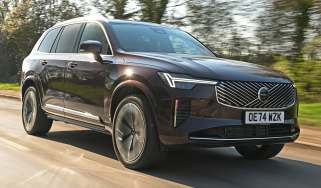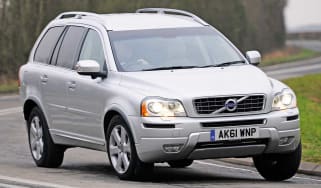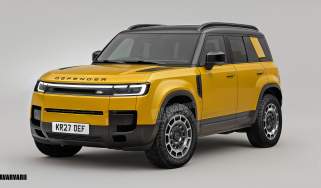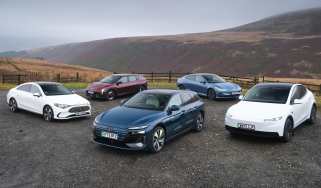No fatalities ever recorded in a Volvo XC90 in the UK
Analysis of official figures finds no driver or passenger fatalities have been recorded in Volvo's XC90 since records began in 2004

The Volvo XC90 has often been heralded as one of the safer cars money can buy, and a new analysis of official accident figures back up its many accolades.
Experts from Thatcham Research have analysed official police-provided Government accident statistics, cross-matching them against insurance data, and found no record of anyone ever dying inside an XC90 – either as a passenger or driver – between 2004 and 2017, the earliest and latest years for which figures are available.
Matthew Avery, director of research at Thatcham, told Auto Express: “Often when a vehicle is new, you don’t see fatalities, as it takes time for models to build up sales numbers. But we have around 14 years’ history of the XC90, and that stands out.”
Around 70,000 XC90s have been sold in the UK since the original model launched in 2002, and Avery explained that the data applies to both the original car and the current model, launched in 2014 – meaning the Mk 1 (pictured below) is likely to account for the majority of those years of non-fatalities. “The old XC90 is very good. In terms of people being killed, in 14 years, I can’t see any”, Avery said.
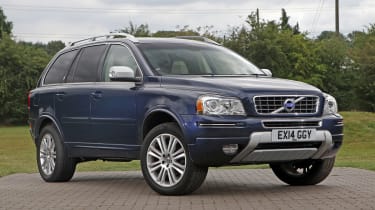
The news does much to bolster Volvo’s ‘Vision 2020’ mission statement that nobody should be killed or seriously injured in one of the company’s cars by that date. “When you look at Volvo’s 2020 claim, and their blend of active and passive systems, maybe they can achieve it”, Avery said.
While ‘active’ safety systems like autonomous emergency braking (AEB) have a huge role to play in car safety, Avery said: “Only the second-generation XC90 has autonomous emergency braking as standard. AEB wasn’t even offered as an option on the first-generation car – though it had blind-spot detection.”
The standout protection offered by the XC90 is, Avery explained: “Not only down to crash avoidance, it’s due to its excellent passive systems, like seatbelts, airbags and its fundamental structure.” He added: “I’m sure the new XC90 is avoiding crashes, and in a few years’ time, when we analyse the data again, I’m sure it will look even better.”
Avery told us other models also stood up well to analysis: “We can see the second-generation Audi Q7 has a similar level of performance to the XC90, but that hasn’t been on sale as long as the Volvo.” But he added: “We are struggling to find many vehicles with similar exposure [i.e. numbers sold]. It’s unlikely anyone has been killed in the UK in a Bugatti Veyron, for example, but there are a lot of XC90s – it’s a popular large SUV.”
Asked what he thought other manufacturers should learn from the XC90’s performance, Avery said: “The clear message is that safety is a mixture of active and passive systems. You need the passive systems to protect people in the even of a crash, while active systems help prevent them in the first place.”
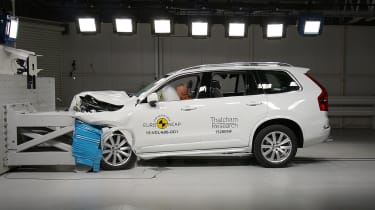
He cautioned, though, that: “We don’t want manufacturers fitting lots of active systems in place of passive systems – you’ve got to have fundamentally good passive safety.”
Is there something about Volvo that drives their quest for improving road safety? “It’s a very Volvo/Swedish thing, about corporate responsibility, about keeping people safe. It’s part of their psyche”, Avery said. “Every time we test Volvos for Euro NCAP, they tend to be at the top of the tree. They do much more than they need to in order to get five [Euro NCAP] stars.”
Avery singled out other car makers for praise, too: “Other manufacturers, like Mercedes, continue to raise the bar – I’d put them up there with Volvo”, he added. “But if you look at the brands, only Volvo and Land Rover have 100% standard fit of AEB across their ranges. Mercedes has 88 per cent, which is brilliant, but Volvo has 100 per cent.”
Returning to the XC90’s blend of active and passive safety systems, Avery concluded: “It’s delivering real-world benefits.”
What do you think of Volvo's safety record? Let us know in the comments...

